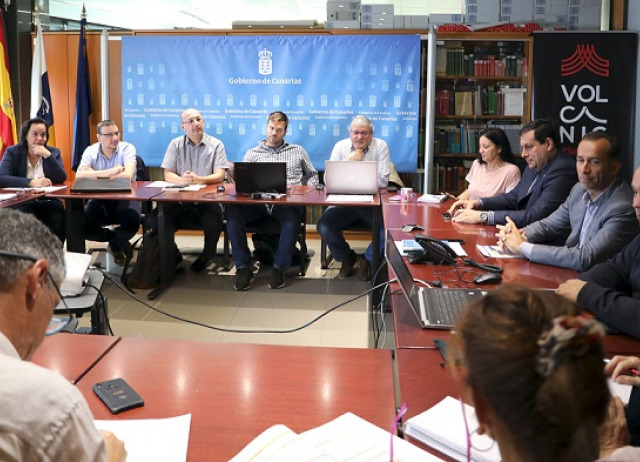Drones for smart vineyard monitoring: the APOGEO project takes off
- Drones equipped with multispectral cameras monitor the vineyards and detect diseases, drought or nutrient deficiencies at a very early stage, allowing immediate response.
- The APOGEO project involves universities, research centres, public administrations and companies in the Canary Islands, Madeira and the Azores. Led by the ULPGC, it is financed by the MAC-INTERREG programmes and by European FEDER funds.
- The project will be complemented with training for young agricultural workers in these new technologies, through the Canary Islands Agricultural Training Schools.
Drones that monitor crops by detecting problems at an early stage and cover large areas in a short time. Drones that apply the treatment only to those plants that need it, thus saving work and inputs to the farmer. This is the smart agriculture that will change the world of agriculture in the coming years, making it cheaper and reducing the need for fertilizers, plant protection products or pesticides. This is the agriculture that is being studied by the APOGEO project, which is led by the University of Las Palmas de Gran Canaria (Institute of Applied Microelectronics) with the participation of the Institute of Natural Products and Agrobiology (IPNA-CSIC), the University of Madeira and the Directorate General of Agriculture of the Canary Islands, as well as their Schools of Agricultural Training, and the Cabildos of Gran Canaria and La Palma. The launch meeting took place on 31 January at the headquarters of the Directorate General for Agriculture of the Canary Islands and was attended by representatives of all entities, including the Deputy Regional Minister for the Primary Sector of the Government of the Canary Islands, Mr Álvaro de la Bárcena Argany and the Director General for Agriculture, Mr José Basilio Pérez Rodríguez.
The APOGEO research project is financed with ERDF funds (INTERREG-MAC 2014-2020 call) and its main objective is to improve competitiveness and innovation in the Macaronesian wine companies through precision agriculture. These techniques consist in the implementation of smart monitoring systems by means of drones equipped with multispectral cameras, which take images of the plants and the soil with different types of light. In this way, the cameras record quality information about the growth and health of the vineyards, as well as any possible problems that the crops may have due to nutritional or irrigation deficiencies or pathogen attacks. This detection allows the development of early treatments, which not only increases the effectiveness of the response, but can also reduce the amount of compounds needed and be more respectful of the environment. In addition, CSIC researchers are working on the creation of new phytosanitary products that are closer to the substances used by plants as a natural defence, improving their properties and effectiveness and also minimising the environmental impact.
The University of Madeira and the Agricultural Training Schools of the Directorate-General for Agriculture will host the first field trials of these innovative precision agriculture systems and other project partners, such as companies and wine growers' associations from the Canary Islands, Madeira and the Azores, will follow suit.
For more information about the project: APOGEO
Enlaces y documentos
